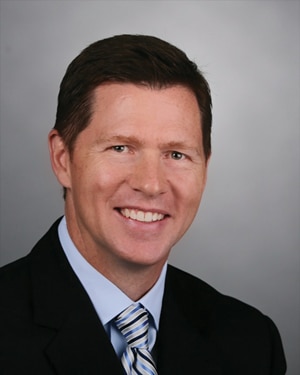3 Questions for Troy Caraway
CEO, Physicians Plus Insurance Corp., and senior vice president, UnityPoint Health

JOE GARDYASZ Feb 13, 2015 | 12:00 pm
3 min read time
678 wordsBusiness Record Insider, Health and Wellness, InsuranceA year ago, West Des Moines-based UnityPoint Health acquired Physicians Plus Insurance Corp., a Madison, Wis.-based health insurance company that it plans to use as a platform for developing a regional health insurance division. Six months later, Troy Caraway was hired to lead Physicians Plus and to organize the insurance division. Although historically a viable company, Physicians Plus has reported losses in the past several years. Part of Caraway’s duties will be to return the company to financial health. The Business Record recently asked Caraway for an update on Physicians Plus and the new division.
What opportunities does this acquisition represent for UnityPoint Health?
It does reflect what’s happening in the market … a convergence of providers and payers in the market related to the triple aim of health care (improving the experience of care, improving the health of populations and reducing per capita costs of health care). This is where differentiation in the market is happening and will likely continue to happen. Having had the opportunity to work with a number of health plans around the country, I put a bias toward those that have both capabilities. So I think UnityPoint Health choosing to enter the health insurance business creates a differentiation in quality and cost that’s very leading edge.
There are a couple of distinct advantages when you bring those (provider and insurance) assets under one umbrella. One of the single most important ones relates to data. Data is increasingly becoming the tool of opportunity that informs us around population health and risk, but the ability to take action on that data is oftentimes elusive. For instance, a provider may have the clinical electronic medical record data, but they don’t have the claims data. It’s really the administrative data and clinical data coming together to create more robust information.
You’re also in a place to create better (wellness) incentives. … The (health care) market is moving from fee-for-service to fee-for-value. That’s a fundamental transformation that requires a significant investment on the delivery side of the system as well as cooperation from the health plan side for that to work well. I think there is a distinct advantage to a system that has both the delivery and insurance functions under one roof.
What are the biggest challenges in turning Physicians Plus around?
When we acquired Physicians Plus in January 2014, the company had come through several years of financial losses because of several accounts that weren’t properly underwritten. A lot has been done to rebalance that, and we are now in the process of creating a strategy for the future. That is much broader than the Madison (Wisconsin) market the company had traditionally operated in. What we’re beginning to do is to build a regional health insurance entity. That may take the form of us going to market as Physicians Plus, or through partnerships with other health insurance companies. Acquiring a health insurance company gives us the flexibility to mold that form to the market dynamics that exist.
We’ve improved our financial performance significantly. We’re performing well ahead of budget, and at the same time we’re developing an infrastructure for growth. With any turnaround, it begins with defining what that growth strategy is, and we’ve recently identified with our board what that strategy is. We have recently hired a chief financial officer, and we will be recruiting for a chief operating officer. We’re creating a high-performance operation that will be data-driven. It’s an exciting time; the organization has come a long way in a short time.
What are the plans for new product development and hiring?
Regarding products, we’re investing into the core competencies required for (offering) Medicare Advantage. Our intent is to enter that market very shortly in Illinois and Wisconsin, and we will be evaluating other states as well.
Currently, we have roughly 130 employees in Madison. The investment in (additional) individuals will be a balance between Madison and Des Moines, probably weighted toward Madison. The chief financial officer will be based in Des Moines, and the chief operating officer will be in Madison.










